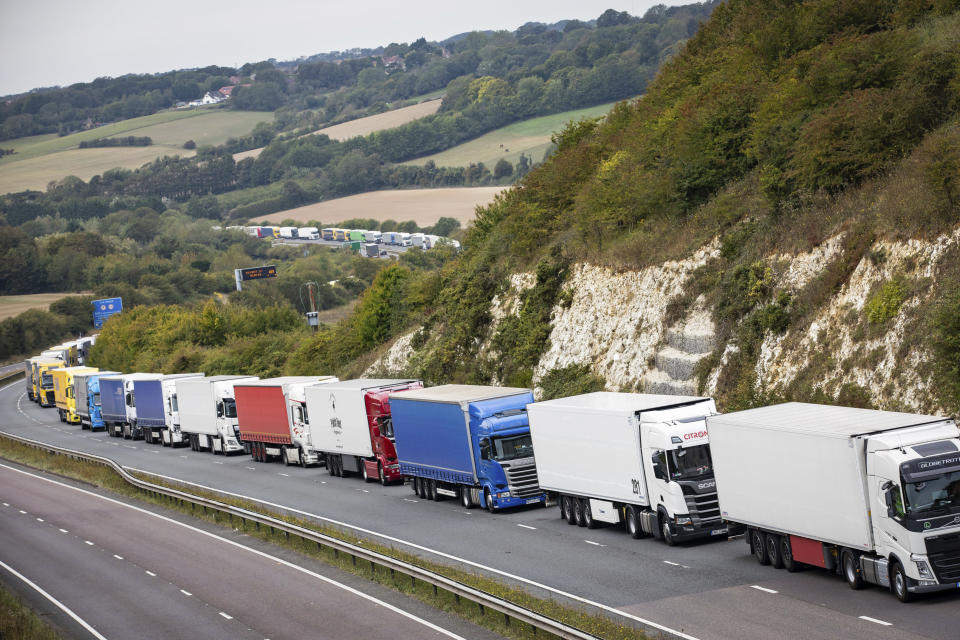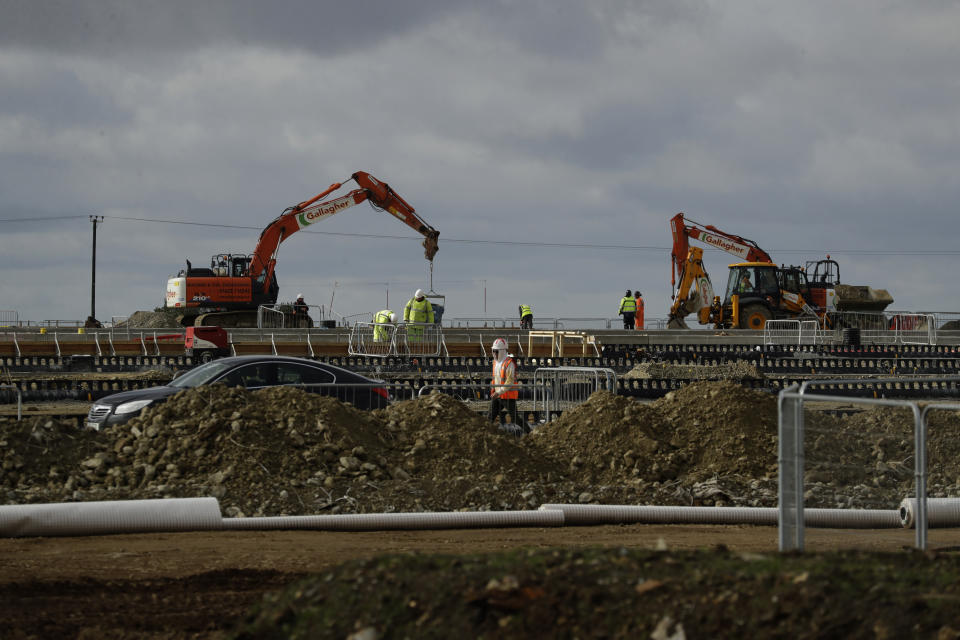'Concern' about UK Brexit border readiness

Concerns are growing that crucial new government IT systems and border controls may not be ready in time for the end of the Brexit transition period on 1 January.
Port and trade bosses gave evidence to the House of Lords’ sub-committee on EU Goods on Monday, insisting they were ready for the end of transition but warning that crucial government-funded infrastructure may not be.
“We don’t quite know yet whether the infrastructure will be ready in time because we are currently awaiting the response from the government for the call for tenders, bids for building new border infrastructure,” said Tim Morris, chief executive of the UK Major Ports Group.
READ MORE: UK reaffirms red lines in Brexit talks 'end game'
Morris was referencing the £200m ($263.4m) Port Infrastructure Fund launched by the UK government at the start of last month. Ports can bid for one-off grants to build things like warehouses, control posts, and traffic management systems in preparation for Brexit.
“The area of biggest concern would be Northern Ireland where some of this infrastructure has to be in place for 1 January,” Morris said. “That is currently very challenging. I anticipate that officials in Northern Ireland are looking at minimal viable alternative solutions to provide some stopgap cover there.”
Morris said it was a “significant” concern that the fund was already oversubscribed and urged the government to consider expanding it.

John Keefe, director of public affairs at Getlink, which owns the Eurotunnel, told the Lords committee he was concerned that IT systems being built by the government may not be ready on time.
The UK government is building new software — known as the Goods Vehicle Movement Service (GVMS) — that will allow trucks to clear cargo with HMRC prior to reaching ports. The idea is to prevent costly delays at the border as checks take place.
“Given that the GVMS system is still in development and some other systems that the UK government is developing currently, like the check and HGV system, which will be essential for traffic running through the short straights route, and that they haven’t tested in real life yet and the testing is planned for the middle of December, there has to be a degree of concern as to whether they will be ready in time,” Keefe said.
Richard Ballantyne, chief executive of the British Ports Association, commended the “huge amount of government activity” but complained it had been difficult for the industry to get clarity on crucial issues.
“The things we’ve needed to know, we’ve found it’s been agonising getting some of the information out of government,” he said.
Beyond the UK government’s preparedness, port bosses also warned that too many businesses appeared to be unprepared.
“We are ready… but you can’t be ready alone,” said Mark Dijk, manager of external affairs Port of Rotterdam. “You can’t just leave it to the ports.
“Even when there is a settlement you still have to do some export declarations etc. [...] That’s is what we are concerned about.”
READ MORE: Businesses have 'head in the sand' over Brexit preparation
Dijk said the Port of Rotterdam “definitely expect[s]” hiccups. The port has installed 750 extra parking spaces to deal with lorries that arrived without the correct paperwork.
“The Hauliers must be prepared,” said Jean-Marc Puissesseau, chief executive of the Port of Calais. “When you take the plane you have to show your passport. If you don’t have your passport you stay in Heathrow or Charles de Gaulle airport. It’s the same now to get to UK — you have to have documentation.”
Watch: What are post-Brexit freeports?

 Yahoo Finance
Yahoo Finance 